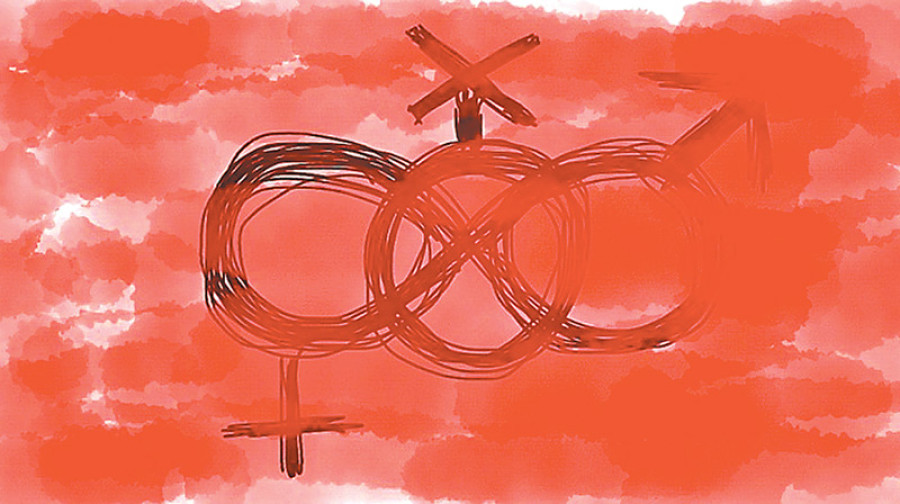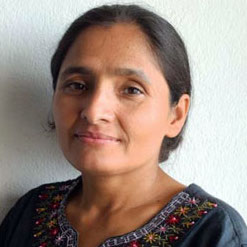Opinion
National disgrace
While walking from village to village in Dailekh, I met Kamala (name changed), a married, adolescent girl.
Radha Paudel
While walking from village to village in Dailekh, I met Kamala (name changed), a married, adolescent girl. She smiled and pointed at the shed, and said, “My sister-in-law and I started using my maternal shed during menstruation because it is cleaner.” Kamala’s father was at home. He said furiously, “Our shed is extremely clean, so why should you worry?” A newly elected Nepali Congress leader, who also worked as a Dhami (shaman), claimed that he was not asking women to live in cowsheds.
Unanswered questions
Earlier, a CPN (Maoist) leader had claimed that there was no Chhaupadi in Dailekh anymore. He said that they had abolished the custom of women living in sheds when they had their period during the conflict. NGOs and the government have been making fake reports, he added. On the other hand, school children and women say that girls and women still live outside their homes during menstruation, either in a separate house or a shed. They use traditional materials to protect themselves from the rain.
In general, a clean shed is better than a dirty shack or cattle shed. It brings to mind the constitutional right under Article 37 which guarantees the ‘right to appropriate housing’. Does a clean shed fulfil the human rights of a girl or woman during menstruation as guaranteed by the constitution? The clean shed is a violation of human rights where gender inequality and discrimination are institutionalised in many ways. Menstrual rights are stated directly and indirectly in the preamble to the constitution and 10 various articles under fundamental rights.
How does a clean shed ensure the rights of a girl during menstruation? Can she live with her family members? Can she accompany her friends to school? Can she touch the male and senior members of her family and her neighbours? Can she move around freely? Can she take part in a cultural or social activity of her family or community? Can she touch fruit and vegetable plants? Can she eat any milk or meat product? Does a clean shed protect the inhabitant from attacks by drunk and lecherous men, wild animals or snakes? Does this clean shed allow the use of any water source, toilet, temple, school or sanitary materials freely? Does this clean shed provide adequate clothing and sanitary materials? Does this clean shed allow a girl to grow as an equal to boys of her age? Does this clean shed convey the message that menstruation is biological and an essential process of human existence? To me, a clean shed doesn’t answer most of these questions and never has.
Underlying cause of inequality
While using a clean shed, a girl faces lots of issues related to peace, human rights and empowerment. It conveys a message of masculine power and gender discrimination. Even young children start to understand the difference between women and men or girls and boys by following the activities of the girls who use sheds. In the villages, a shed can be used by many households, and in some places, they are made for communal purposes too. Girls are constantly experiencing humiliation, low esteem and low morale no matter whether they are living inside the house or not. The shed has been made specifically for her use. She bleeds for five days every month, but the shed remains standing as a piercing and constant reminder of her supposed inferiority.
May 28 has been celebrated as International Menstrual Day globally since 2014 when the UN declared that restrictions related to menstruation were underlying causes of inequality. To me, menstruation is a biological process and a human right concern, thus it is everyone’s business. By considering the associated myths, rumours, illnesses, needs and priorities, especially in the Nepali context, intervention should be holistic in nature. It is beyond the matter of a clean or dirty shed or the number of toilets in schools or infrastructure or sanitary pads. The first and foremost principle is dignity. Unfortunately, Nepali actors are more focused on infrastructure with many calling for clean and communal sheds. Many actors are also urging that the practice be abandoned and the sheds demolished.
It is highly appreciable that the Ministry of Water Supply and Sanitation has taken the lead role in drafting a policy to end this practice. A common understanding among all stakeholders and the government on the issues and strategies will expedite the work. Menstrual rights are a key element for achieving the overarching goals of peace, justice, human rights and empowerment of women.
Paudel is Founder/President of Action Works Nepal and author of the Madan Puraskar-winning ‘Khalanga ma hamala’




 8.67°C Kathmandu
8.67°C Kathmandu










